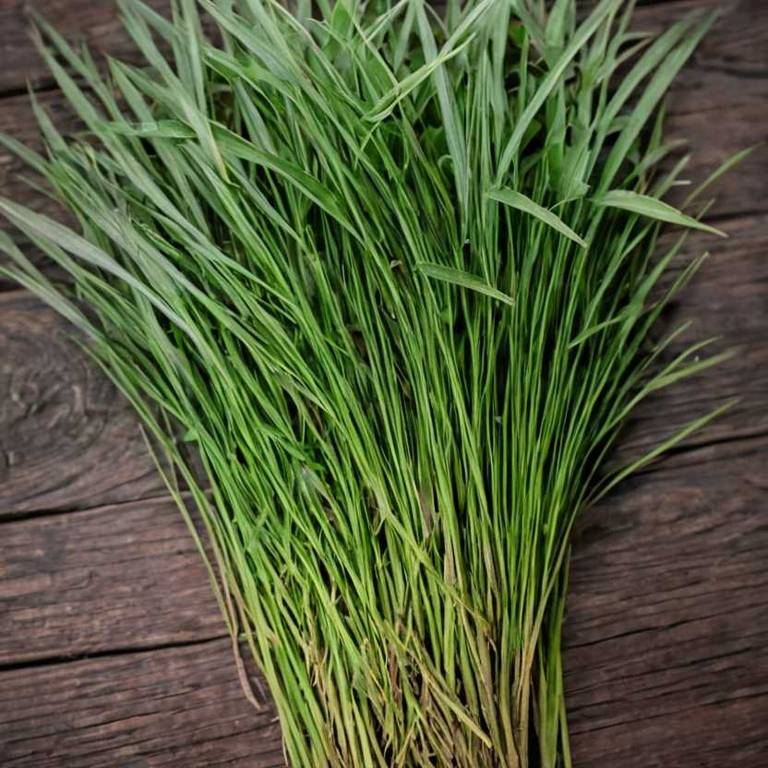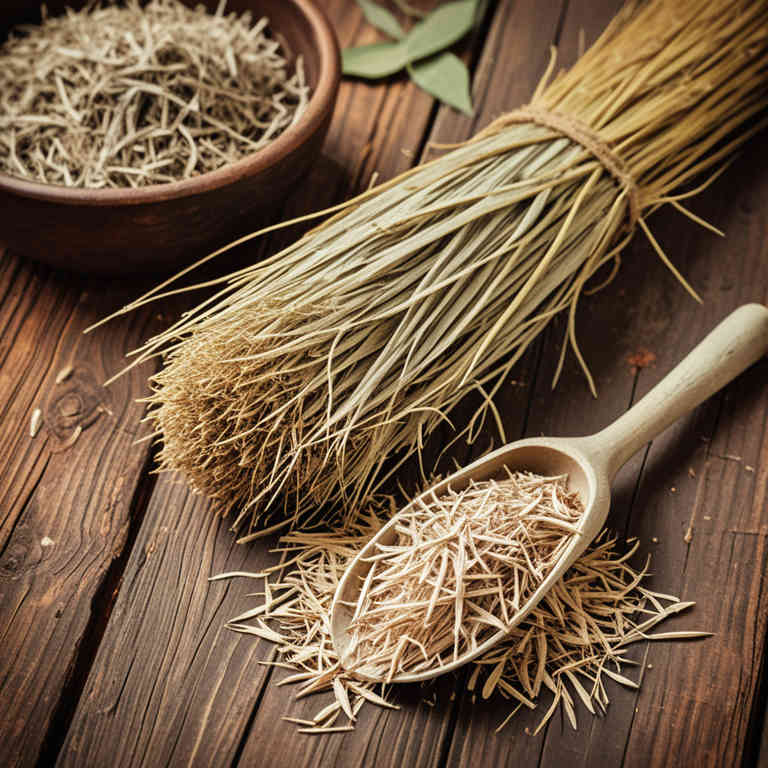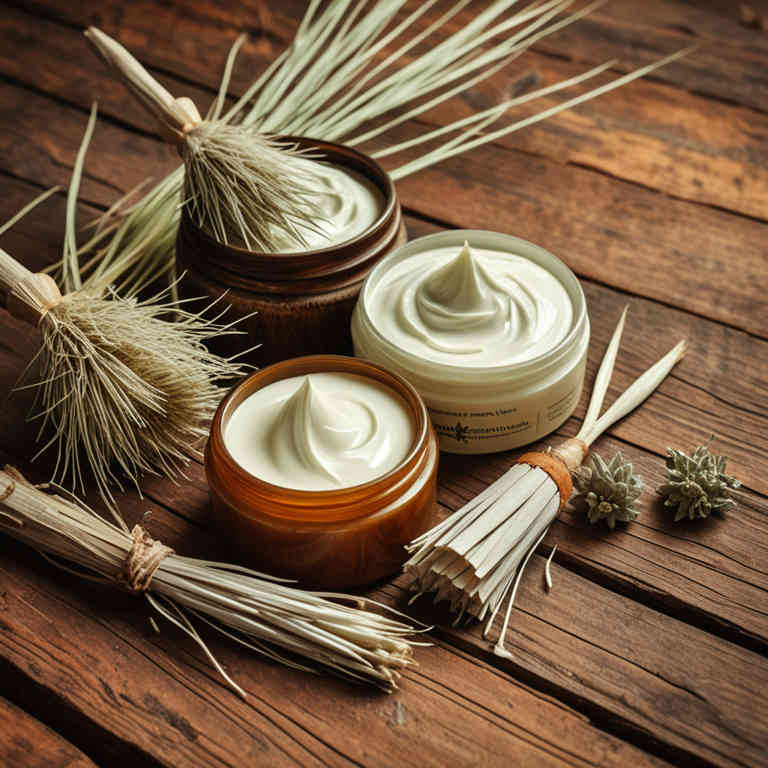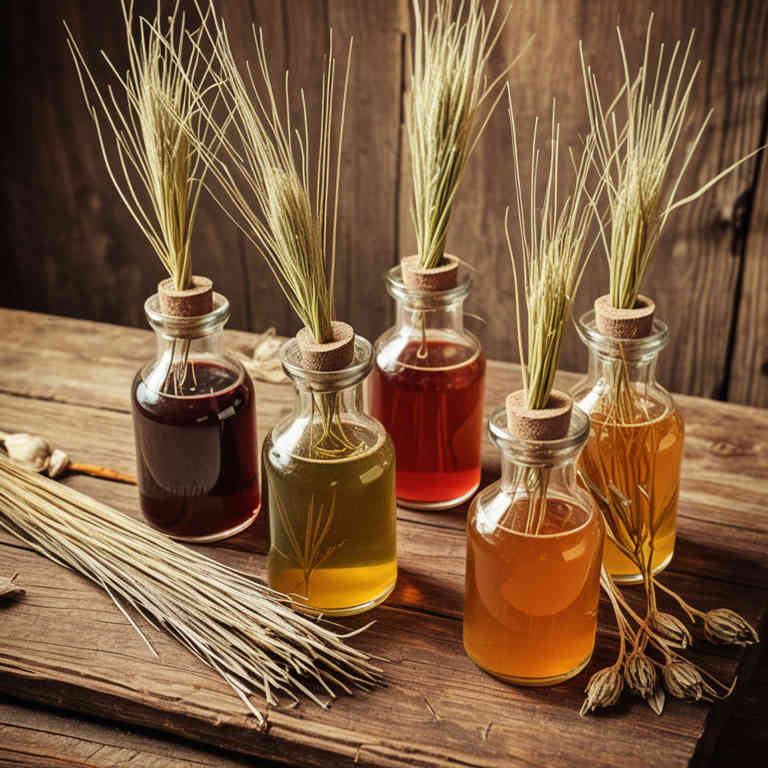10 Best Cymbopogon Nardus Preparations

The best medicinal preparations of Cymbopogon nardus are teas, decoctions, tinctures, essential oils, and capsules, each offering unique benefits for health and wellness.
Teas made from dried leaves are commonly used to promote relaxation and digestion.
Decoctions involve boiling the herb to extract its active compounds, often used for respiratory support.
Tinctures provide a concentrated form of the herb, ideal for targeted therapeutic use.
Essential oils derived from the plant are valued for their aromatic and therapeutic properties, often used in aromatherapy.
Capsules offer a convenient and standardized way to consume the herb for consistent dosing.
Below there's a list of the 10 best herbal preparations of cymbopogon nardus for medicinal purposes.
1. Teas
Cymbopogon nardus teas is commonly used to promote relaxation, alleviate digestive issues, and support respiratory health.
This herbal preparation is frequently employed to treat ailments such as stress, anxiety, indigestion, and mild respiratory infections. The bioactive constituents responsible for its medicinal properties include essential oils like citral, geraniol, and myrcene, which possess antimicrobial, anti-inflammatory, and calming effects. These compounds contribute to its ability to soothe the nervous system and aid in digestion.
Additionally, the tea may help in reducing nausea and improving overall well-being.

2. Decoctions
Cymbopogon nardus decoctions is commonly used to treat digestive issues, respiratory infections, and skin conditions due to its aromatic and antiseptic properties.
These decoctions are often employed to alleviate symptoms of nausea, indigestion, and gastrointestinal discomfort. They are also used in traditional medicine to relieve coughs, colds, and bronchitis by promoting expectoration and reducing inflammation. The bioactive constituents responsible for these effects include essential oils such as citral, geraniol, and myrcene, which possess antimicrobial, anti-inflammatory, and antioxidant properties.
Additionally, the presence of flavonoids and phenolic compounds contributes to its therapeutic benefits.

3. Tinctures
Cymbopogon nardus tinctures is commonly used to treat ailments such as digestive issues, respiratory infections, and skin conditions.
These tinctures are often employed for their antimicrobial, anti-inflammatory, and calming properties. The most common medicinal uses include alleviating symptoms of colds, flu, and gastrointestinal discomfort. They are also used in aromatherapy to reduce stress and promote relaxation.
The bioactive constituents responsible for these effects include essential oils like citral, geraniol, and myrcene, which have potent therapeutic actions.

5. Capsules
Cymbopogon nardus capsules is commonly used to treat digestive issues, stress, and respiratory conditions.
These capsules are widely utilized for their calming effects and ability to aid in digestion. They are also used to alleviate symptoms of anxiety, insomnia, and inflammation. The bioactive constituents responsible for these effects include essential oils such as citral, geraniol, and myrcene, which possess antispasmodic, antimicrobial, and anti-inflammatory properties.
This herbal preparation is often recommended for its natural ability to support overall well-being and promote relaxation.

6. Oils
Cymbopogon nardus oils is commonly used to treat a variety of ailments such as digestive issues, respiratory infections, and skin conditions.
The oils are widely utilized in aromatherapy and traditional medicine for their calming and antiseptic properties. They are also used to alleviate symptoms of stress, anxiety, and insomnia due to their soothing effects. The most common medicinal uses include treating headaches, nausea, and inflammation.
The bioactive constituents responsible for these effects include essential oils like citral, geraniol, and myrcene, which possess antimicrobial, anti-inflammatory, and antioxidant properties.

7. Creams
Cymbopogon nardus creams is commonly used to treat skin conditions, inflammation, and muscle pain due to its soothing and anti-inflammatory properties.
These creams are often applied topically to relieve symptoms of eczema, psoriasis, and minor burns. They are also used to alleviate joint pain and reduce swelling in conditions like arthritis. The bioactive constituents responsible for these effects include essential oils such as citral, geraniol, and myrcene, which have antimicrobial, anti-inflammatory, and analgesic properties.
Additionally, these compounds contribute to the calming and refreshing scent of the cream, enhancing its therapeutic appeal.

8. Syrups
Cymbopogon nardus syrups is commonly used to treat respiratory conditions, digestive issues, and skin infections due to its aromatic and antimicrobial properties.
The most common medicinal uses include alleviating symptoms of colds, coughs, and bronchitis, as well as aiding digestion and reducing inflammation. It is also used topically for treating minor skin irritations and fungal infections. The bioactive constituents responsible for these effects include essential oils such as citral, geraniol, and myrcene, which possess antimicrobial, anti-inflammatory, and antispasmodic properties.
These compounds contribute to the plant's effectiveness in addressing a variety of health concerns.

9. Lozenges
Cymbopogon nardus lozenges is commonly used to relieve symptoms of respiratory tract infections, such as coughs, sore throats, and congestion, due to their antiseptic and anti-inflammatory properties.
These lozenges are also used to treat oral infections, including gingivitis and periodontal disease, and to freshen breath. The most common medicinal uses of this herbal preparation include alleviating symptoms of colds, flu, and other upper respiratory conditions. The bioactive constituents responsible for its medicinal properties include essential oils such as citral, geraniol, and limonene, which have antimicrobial, antiviral, and anti-inflammatory effects.
These compounds contribute to the lozenges' ability to soothe irritated mucous membranes and reduce microbial activity in the throat and mouth.

10. Oinments
Cymbopogon nardus oinments is commonly used to treat skin conditions, inflammation, and minor wounds due to its antiseptic and anti-inflammatory properties.
These oinments are often applied topically to alleviate symptoms of eczema, psoriasis, and fungal infections. The most common medicinal uses include reducing skin irritation, preventing infections, and promoting wound healing. The bioactive constituents responsible for these effects include citral, geraniol, and myrcene, which possess antimicrobial, anti-inflammatory, and analgesic properties.
These compounds work synergistically to enhance the therapeutic benefits of the herbal preparation.
